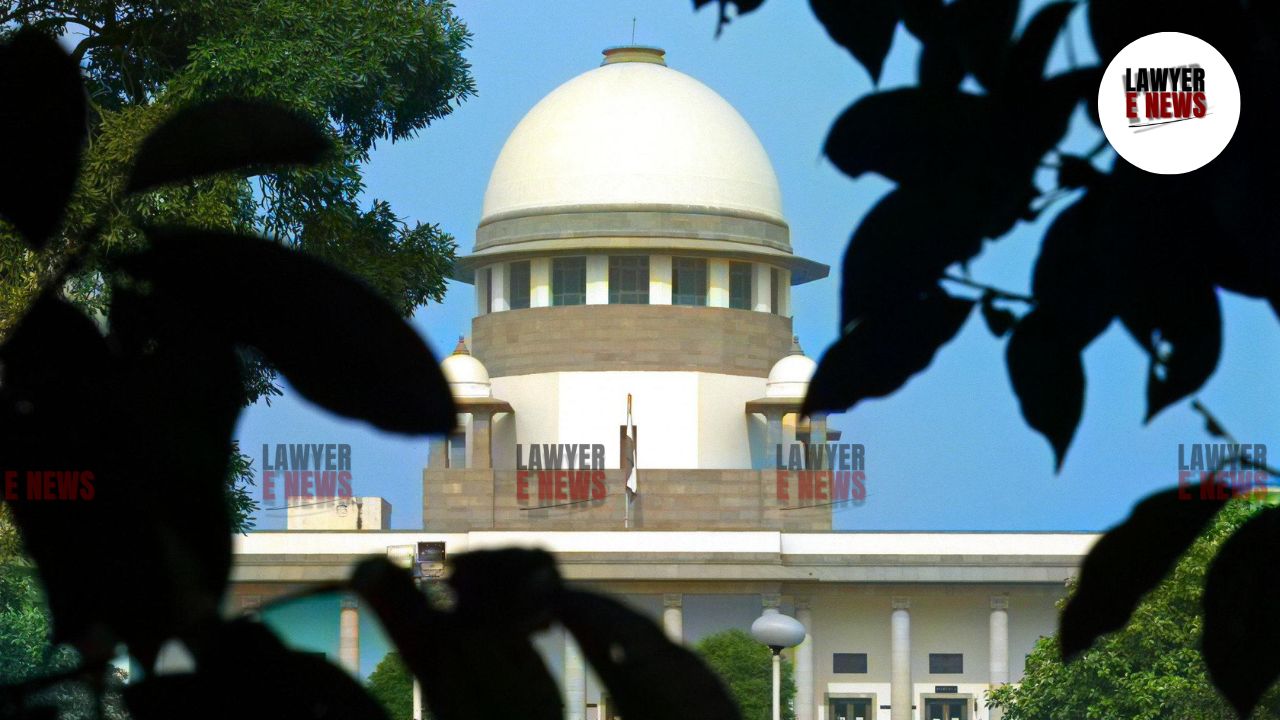-
by Admin
15 February 2026 2:36 AM



High Court Erred in Reducing Valuation of Acquired Land, Reference Court’s Award Restored - Supreme Court of India set aside the judgment of the Punjab and Haryana High Court that reduced the compensation awarded by the Reference Court for land acquired in Village Tauru, District Mewat. The Supreme Court ruled that the High Court’s assessment undervalued the land and restored the Reference Court’s higher compensation, ensuring consistency with its earlier precedent in Horrmal (since deceased) v. State of Haryana.
The bench comprising Justice Surya Kant and Justice Ujjal Bhuyan held:
"The High Court erred in reducing the valuation of the land and affirming the figures granted by the Land Acquisition Collector (LAC). The Reference Court’s evaluation, based on sale deeds and potential land value, was nearly accurate and aligned with the evidence."
Binding Precedent from Horrmal Case Ensures Consistency in Valuation
In a significant observation, the Supreme Court applied its earlier judgment in Horrmal (since deceased), which dealt with the valuation of land acquired in the same area under similar notifications. The Court underscored that uniformity in compensation for acquisitions under analogous circumstances was imperative.
The Court reiterated its finding in Horrmal, where it had stated: "The evaluation conducted by the Reference Court was nearly accurate and aligned with the evidence of the sale deeds and potentiality... the High Court’s reduction of valuation was unjustified."
The case arose from the acquisition of land in Village Tauru, District Mewat, Haryana, under notifications dated February 11, 2011, and February 10, 2012, issued under Sections 4 and 6 of the Land Acquisition Act, 1894. The Land Acquisition Collector (LAC) had initially determined the compensation. Dissatisfied with the valuation, the appellants sought enhancement before the Reference Court, which granted them higher compensation. However, the High Court reduced the compensation, prompting the appellants to approach the Supreme Court.
The appellants argued that the High Court failed to consider the commercial potential of the land and overlooked crucial sale exemplars. They further contended that the judgment in Horrmal established a binding precedent for the valuation of the land acquired in the same area.
Supreme Court’s Observations
The Supreme Court noted that the issue of compensation for the acquired land was already adjudicated in Horrmal. The principles of valuation and compensation laid down in that case directly applied to the present matter.
The Court emphasized the following points:
Commercial Potentiality: The Reference Court’s evaluation considered the commercial potentiality of the land, relying on sale exemplars.
Undervaluation by High Court: The High Court unjustifiably reduced the compensation, overlooking critical evidence.
Binding Nature of Precedent: As the present case arose out of the same acquisition notifications as in Horrmal, the earlier ruling must be followed for consistency.
The bench held: "For the reasons stated above, these appeals are allowed, the impugned judgment of the High Court is set aside, and the compensation amount granted by the Reference Court is hereby restored."
The Supreme Court reinstated the Reference Court’s award and directed the respondents to pay the compensation along with all statutory benefits, including interest, within eight weeks. It stated: "The compensation amount, if already not paid, wholly or partly, as per the award of the Reference Court, shall be paid to the appellants and other landowners along with all statutory benefits, including interest, within eight weeks."
The Supreme Court’s judgment underscores the importance of fair compensation for land acquisition and adherence to judicial precedents to ensure consistency and justice. By restoring the Reference Court’s award, the Court reinforced the rights of landowners to receive adequate compensation based on the land's commercial value and potential.
Date of Decision: December 20, 2024
